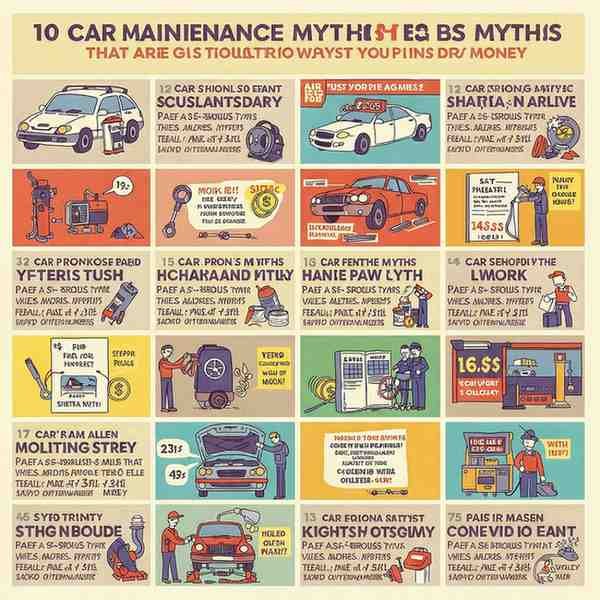10 Car Maintenance Myths That Are Wasting Your Money
Table of Contents
car maintenance myths When it comes to keeping your vehicle in good condition, many people still follow outdated advice or fall for well-meaning suggestions that actually do more harm than good.
Believing these myths not only burns a hole in your pocket but may also lead to unnecessary repairs in the long run.
Here are 10 common misconceptions that Indian car owners should stop believing
Premium Fuel Improves Performance in Any Car
Unless your car specifically requires premium fuel, filling up with high-octane petrol won’t make your vehicle run smoother or faster.
For regular engines, it’s simply an extra cost with no benefit. car maintenance myths Many people assume “premium” means better, but it doesn’t apply to every car.
Change Your Engine Oil Every 3,000 km
car maintenance myths This is probably the most common myth around.
Earlier models did need frequent oil changes, but most modern vehicles can go 8,000 to 10,000 km before requiring fresh oil.
Check your owner’s manual instead of blindly sticking to the old 3,000 km rule. Overdoing it just wastes money and resources.
You Must Warm Up the Engine Before Driving
car maintenance myths This used to be true in older cars, especially in colder climates.
But with today’s engines, warming up for several minutes is unnecessary.
Just start the car, wait 30 seconds or so, and drive gently for the first few minutes.
Idling wastes fuel and pollutes the air.

A Clean Car Runs Better
While it’s important to keep your car clean for hygiene and appearance, it doesn’t directly affect performance.
Some service centres may upsell unnecessary treatments, claiming they improve mileage or engine efficiency.
Don’t fall for it—focus on what truly matters inside the hood.
Always Use the Dealer for Repairs
car maintenance myths Authorised service centres are reliable, but they’re often more expensive than independent garages.
As long as you choose a skilled mechanic who uses genuine parts, you’re good to go.
Especially for cars out of warranty, local mechanics can save you thousands without compromising on quality.
Topping Off the Tank is Good Practice
Trying to squeeze in extra fuel after the nozzle clicks off can damage your car’s evaporative emissions system.
It might seem like you’re getting more for your money, but in the long run, it can lead to expensive repairs.
Stop when it auto-shuts.
All Tyres Must Be Replaced Together
If one tyre gets damaged or worn out, replacing all four is not always necessary—especially in non-AWD vehicles.
You can often change just one or two, as long as the tread depth matches closely.
A good mechanic can advise based on your specific situation.
You Need to Service Your Car Every 6 Months
Servicing depends more on usage than the calendar.
If you haven’t clocked enough kilometres, some services can be delayed.
Follow the manufacturer’s schedule and don’t let workshops pressure you into early visits unless there’s a specific issue.
Battery Needs Replacement Every Two Years
Many car batteries can last 4–5 years with proper care.
Frequent replacements might be a result of poor maintenance, not actual battery failure.
Before replacing, always get the battery tested rather than assuming it’s dead.
More Frequent Washing Protects the Paint
Frequent washing with harsh detergents or untrained cleaners can actually scratch the paint or strip away protective wax.
Washing once a week with proper products is more than enough.
Also, avoid dry dusting—use water and soft cloths.
CONCLUSION
Being smart about how you maintain your vehicle can save you a lot of money over time.
Always rely on the car’s manual and trusted advice, not hearsay or outdated tips.
Don’t let these myths drain your wallet or lead to unnecessary stress.
REGARDS: SUMAN HUDDA
Why Proper Car Maintenance 101 Is Essential for Your Vehicle’s Longevity

